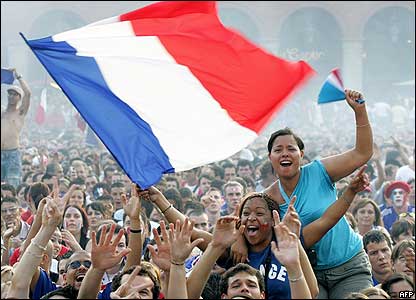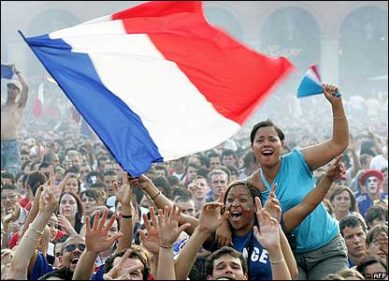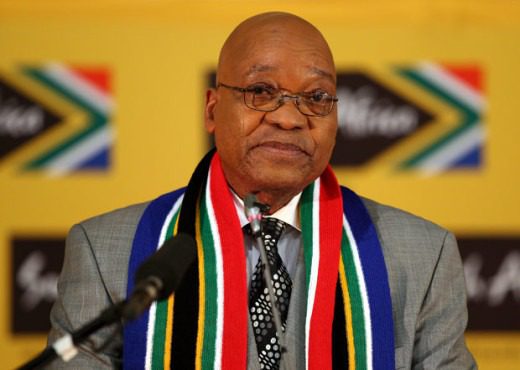Global Issues
If Nigeria had values like France -By Tunji Ajibade

Some journalists in France specialised in printing what some people considered offensive. They said they had the freedom to print whatever they liked. Eight of them were killed as a result days back. Millions of French citizens thereafter took to the streets in defiance of what they called threats to the ideals that their nation stood for. The case got this writer wondering when Nigeria would have its citizens troop out in support of ideals that their nation stand for. On that occasion in Paris, foreign leaders gathered with millions of French nationals, determined to show that violence wouldn’t ever tame what they called western values. Those last two words are sometimes rendered as Western culture, Western civilisation, Western lifestyle or European civilisation. Values are important beliefs or ideals. They are things that really matter to each individual. They are also things widely shared in a group, society or a culture about what is desirable or undesirable. Such have a major influence on a person’s behaviour and attitude because they serve as broad guidelines in all situations, and the most basic of them are learned at home, in schools or in places of worship.
The acknowledged place of origin of what is now known as western culture were the Greek city states and the Roman Empire. The Roman influence here practically covered the face of Europe at one point, with its sophisticated building style overshadowing hamlets made of mud which was in vogue among the inhabitants of the British Isle in pre-1000 AD, for instance. By the time the Church, the Catholic Church, achieved political and religious ascendancy from the fourth century AD, its values had become one as that of Christian Europe. Over the centuries, both the Church and European kingdoms sent men and women across the Atlantic to the Americas, and to Australia. The effect of this is that North America especially, and Australia, consider themselves part of one Western culture and its values. The journey to the point where western values became identifiable had been long, with the blood and sweat of the dedicated and the principled shed for the cause. Through it, western values became synthesised from different fields including music, painting, literature, architecture, religion, sport, media, political thoughts as well as scientific and technological inventions and discoveries.
For Nigeria, the literature angle to this resonates the most. Generations of western educated Nigerians were raised on a diet of William Shakespeare, Charles Dickens and Elliot Hemingway. This writer for instance had had to read the Greek mythologies with the flying horse, Pegasus, and mischievous Greek gods where he knew people with white skins and golden hair as the only possible characters, before he read D.O. Fagunwa’s Yoruba adventure books to imagine characters with black skin. Chimamanda Ngozi Adichie grew up reading about snow in story books before she read Things Fall Apart in which she discovered it was possible to have black characters. Till date, popular bookshops display more children’s books from abroad than they care to sell books by African authors. In the area of music, minds and souls here had been sold to western influences before daring generations of young Nigerians began to take back the market. That’s how powerful a tool western culture has been.
Through its culture, what each nation holds dear is passed on within and without its borders, subtly delivered into hearts until it becomes the essence of the recipients. It becomes the society’s, the nation’s way of doing things, the values that the government is expected to protect; and the government will go to war to ensure it’s protected. One reason is that where values have been propagated, economic returns usually follow. Values are so core to those raised on them that they inform both the tangible and intangible materials they will spend on – music, gadgets, books, clothes. Revenues from these accrue to nations that promote the values; so, every threat to them is met with resistance, the same thing western countries have been doing from the time of communism to the present day religious ideologies.
Since the time of the French Revolution, the country had been holding up the ideals of fraternity equality, liberty and the rest of what the West claims as its own. When the journalists at Charlie Hebdo were threatened for making satires of religious figures in the past, they said they lived more for the values that their country stood for more than any other considerations. The Editor-In-Chief said he was willing to pay with his life. He eventually did. Over 40 world leaders had gathered in Paris to say they condemned what they considered an attack on western values. French President, Francois Hollande, noted that the coming together of the leaders was a show that the West would always stand to resist threats to its values. Then he sent out the military to specially protect public offices and monuments, as well as offer special protection for the Charlie Hebdo’s staff who were bent on releasing a new edition of their publication. When the edition sold millions of copies barely hours after it was released, Hollande hailed it as the rebirth of the publication. Meanwhile, protesters had their day elsewhere, insisting that no publication had the right under any claim of freedom of speech to satire what was their own value. Some have threatened more retaliatory attacks, causing western countries to sit on edge.
This writer won’t go into the controversy in all of this for the simple conviction that cultures will always clash; if it’s not for the reason of cartoons in Charlie Hebdo, it will be for others. No matter what the other side says, each culture will continue to do what it can to uphold what it cherishes, and there will be clashes. The world arrived here that way. Meanwhile, of interest is the phenomenon of people across France rising in their millions to say they supported their values and no amount of violence would tame them. Why this spontaneous act? Aside from other things, the French love the state, and they fancy a regal French state even. Unlike citizens’ suspicion of government found in Nigeria, the French value authority and the whole French society is built on a Top-Down model. Fraternity is understood more as a social and collective responsibility than an individual duty; and the French consider that the State should ensure a minimum level of fraternity among the citizens; they think this is consistent with the power of the State. France sees as morally unacceptable the maintenance of separate communities (African, Arab, Jewish, Polish); it’s why the proportion of immigrants who get French nationality is among the highest in the world. So, it’s forbidden by law to collect any data relative to race, religion, sexual orientation. The French are used to being criticised and reacting to criticism. Criticising is associated with intelligence, its core to the education system. And there are many more reasons for the common front that the French put up on the occasion of the killing of the Charlie Hebdo journalists, including the motto of France – Liberty, Equality and Fraternity – which is the Article 1 of the French Constitution.
The narrative above leads to the thought that there must always be something -tangible or intangible – that makes citizens stick together to project a common front to the rest of the world. France is a multicultural society like Nigeria, but it projects a common front, a strong nation than Nigeria ever does. Why? There are values worth living and dying for that French citizens can point to. When the journalists were killed, their nation did what they had known it would do in order to protect the ideals that they were willing to die for. It occurs to this writer that the few occasions Nigerians band together spontaneously in the kind of numbers witnessed after the French killing are when they have reasons to put up resistance against the state, not in support of the state. The fuel subsidy brouhaha of 2012 is an example. When will Nigeria uphold values that its citizens will wish to live and die for, values that bind all into one force? The time it does is when it will stop being a nation that’s like a handful of sea sand which can’t effectively resist debilitating winds that must of necessity blow from within and from without.





















